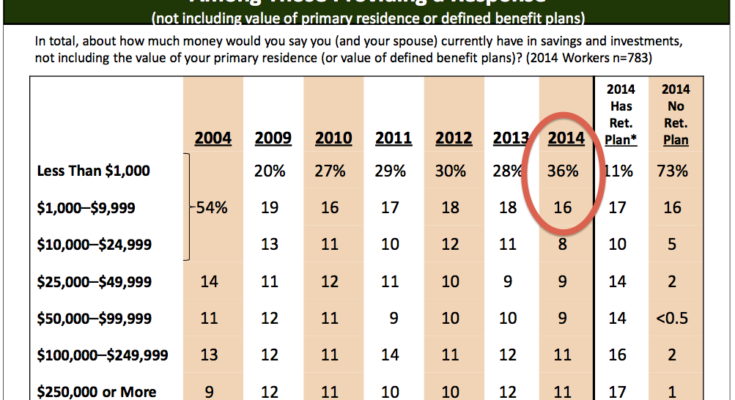Stites on Estates took an interesting look at retirement intentions versus retirement reality along with a reiteration of the dismal statistics about how little savings people who are working have accumulated as well as how few dollars people have put away when beginning their retirement.
First, their table with the numbers of people still working.

Then their table with numbers of people who are retired;

My hunch is that people will look at the tables and either feel good about perhaps being in the $250,000 category or they will be glad they are not the only ones in the $10,000 or less category, in fact they have a lot of company.
The above is data that you have seen before in one form or another. The other point made that is discussed less frequently is how common it is for people to plan to work into their late 60’s or early 70’s only to “retire†much sooner. I put retire in quotes there because people run into health problems that force their hand or their company runs into trouble that results in job cuts.
There are other two tables in the article that address this and they show that 35% of the people who retired in 2014 were 60 or younger and that 32% were between 60 and 64. This compares with 9% younger than 60 and 18% between 60 and 64 who expected to retire at those ages.
It is unclear whether there is any overlap of people but the tables are clear about a dispersion between expectations and reality and the consequence can be significant. It is easy to envision the scenario of someone who in their 40’s and 50’s saved a little for retirement but was more focused on their mortgage and kid’s college expenses who planned to crank up the savings rate in their 60’s and mortgage free with the intention of working until 70. Embedded in that scenario might also be the expectation for generally rising wages all the way through.
Part of retirement planning is the possibility that whatever you have in mind changes from the top down (something with your company or job) or the bottom up (your interests change or your hand is forced for health or family reasons).

